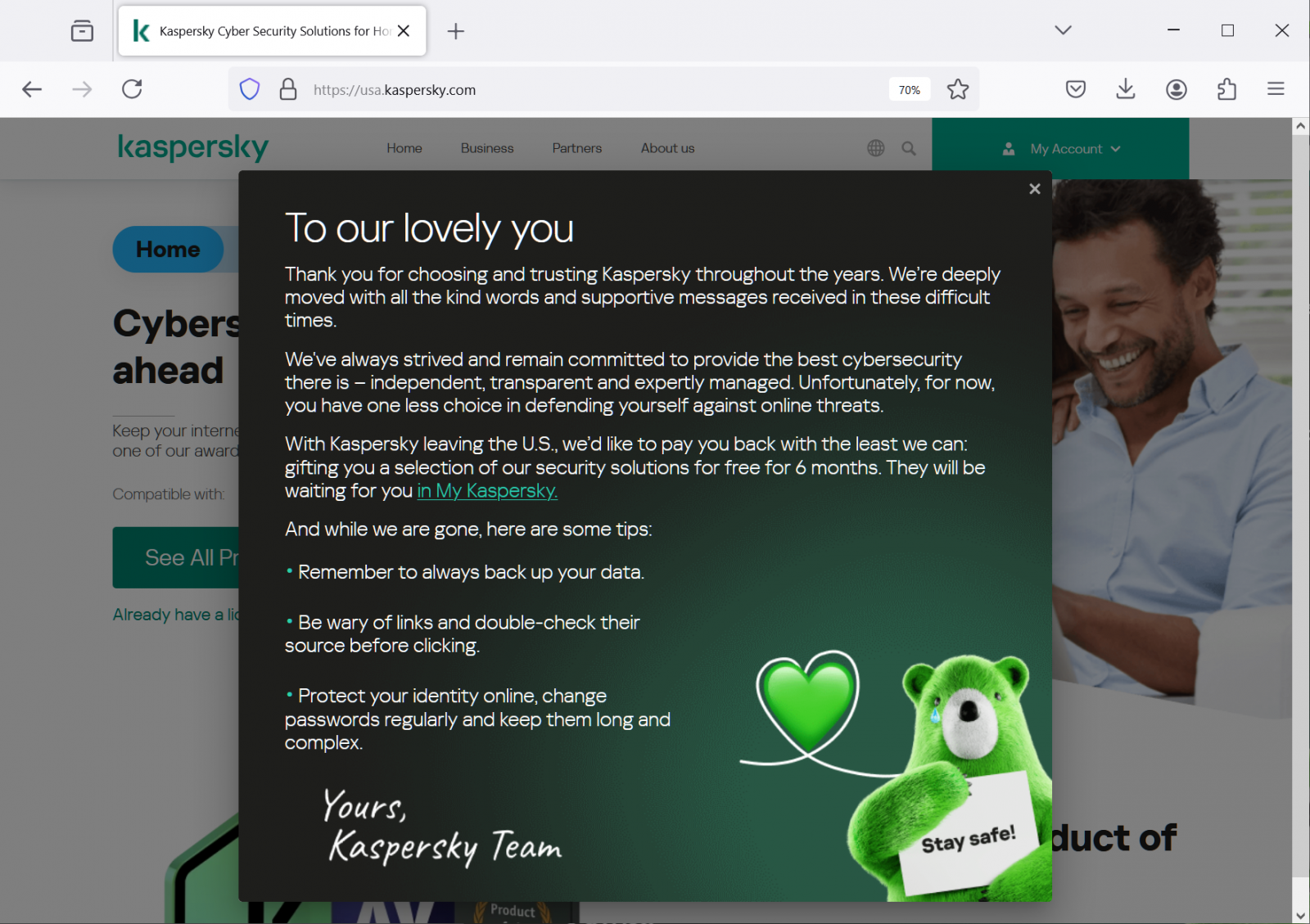Kaspersky is offering free security products for six months and tips for staying safe as a parting gift to consumers in the United States.
The company decided to close its business and lay off employees in the U.S. after the U.S. government added Kaspersky to the Entity List, a catalog of “foreign individuals, companies, and organizations deemed a national security concern.”
Farewell gift to U.S. users
In a message addressed only to users in the U.S., Kaspersky is thanking its customers for choosing and trusting its products over the years.
As a token of farewell, the company is offering users in the U.S. some of its security software free of charge for half a year.
“With Kaspersky leaving the U.S., we’d like to pay you back with the least we can: gifting you a selection of our security solutions for free for 6 months,” reads the message.
The company also provides a short list of general tips that can help users avoid trouble and keep safer:
- remember to always back up your data
- be wary of links and double-check their source before clicking
- protect your identity online, change passwords regularly, and keep them long and complex

source: BleepingComputer
The six-month limitation is likely due to the Department of Commerce’s Bureau of Industry and Security (BIS) banning sales and distribution of Kaspersky products, including updates, in the United States starting September 29.
This means that after that date, U.S. users of Kaspersky products will no longer be able to receive automatic updates and antivirus definitions through the software. Instead, they would need to manually install them via Kaspersky’s site, if made available, potentially decreasing the security of the product.
In a statement for BleepingComputer, Kaspersky said that on July 20 it will begin shutting down its business in the U.S., which also involves lay-offs.
The decision and process follows the Final Determination by the U.S. Department of Commerce, prohibiting the sales and distribution of Kaspersky products in the U.S.
The company has carefully examined and evaluated the impact of the U.S. legal requirements and made this sad and difficult decision as business opportunities in the country are no longer viable.
While the U.S. has banned Kaspersky, the company’s products are still widely used and critical vulnerabilities in any of them are in demand.
For instance, vulnerability disclosure outfit SSD Secure Disclosure headquartered in South Korea has announced “BIG payouts” for pre-authentication remote code/command execution in Kaspersky Security Center, a security management solution for businesses.
With the U.S. market now off-limits and with pressure from the European Parliament (PDF) to exclude the use in vital and sensitive sectors in the European Union of products from vendors in China and Russia, Kaspersky is now forced to move to other regions, such as Asia and South America.

